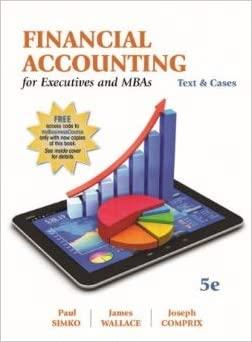Question
QUESTION 11 Z owns a rental building (its only asset) with a gross fair market value of $5,000 subject to the non-recourse mortgage of $2,000.
QUESTION 11
-
Z owns a rental building (its only asset) with a gross fair market value of $5,000 subject to the non-recourse mortgage of $2,000. Zs adjusted basis for this building is $1,500. All of Zs stock is owned by C, whose basis for his stock in Z is $500. Z had 1,000 of E&P. Z is on the accrual method of accounting and reports on the calendar year. Assume that the corporate tax payable by Z on $3,500 gain is $1,250 and on $3,000 gained is $1,000. Z sells the building, subject to the mortgage, to D in the current year for $3,000 in cash. Z then liquidates, distributing all of the cash (remaining after paying its taxes) to C in cancellation of Cs stock in the current year.
Same facts as above, except that Z adopts a plan of complete liquidation instead of selling the building to D. Z distributes the building to C in-kind pursuant to the plan. C then sells the building to D for $3,000 in cash with D taking subject to the mortgage of $2,000.
a. Section 336 treats Z as selling the building to C for $5,000.
b. Z will recognize $3,500 gain which is probably ordinary under Section 1239.
c. C will take the property subject to both $2,000 mortgage and most likely a $735 tax due from Z to the IRS.
d. Cs basis will be the fair market value of $5,000 under Section 334(a).
e. All of the above.
2 points
QUESTION 12
-
Z owns a rental building (its only asset) with a gross fair market value of $5,000 subject to the non-recourse mortgage of $2,000. Zs adjusted basis for this building is $1,500. All of Zs stock is owned by C, whose basis for his stock in Z is $500. Z had 1,000 of E&P. Z is on the accrual method of accounting and reports on the calendar year. Assume that the corporate tax payable by Z on $3,500 gained is $1,250 and on $3,000 gained is $1,000. Z sells the building, subject to the mortgage, to D in the current year for $3,000 in cash. Z then liquidates, distributing all of the cash (remaining after paying its taxes) to C in cancellation of Cs stock in the current year.
Same facts as above, except that Z adopts a plan of complete liquidation instead of selling the building to D. Z distributes the building to C in-kind pursuant to the plan. C then sells the building to D for $3,000 in cash with D taking subject to the mortgage of $2,000.
Same facts as above, except that Z is an S Corporation and Section 1374 does not apply.
a. Z has $1,500 gain.
b. C has a $2,500 gain on the distribution.
c. C has a $1,000 ordinary loss on the distribution under Section 1244 if that section applies.
d. C has $1,000 capital loss.
e. None of the above.
Step by Step Solution
There are 3 Steps involved in it
Step: 1

Get Instant Access to Expert-Tailored Solutions
See step-by-step solutions with expert insights and AI powered tools for academic success
Step: 2

Step: 3

Ace Your Homework with AI
Get the answers you need in no time with our AI-driven, step-by-step assistance
Get Started


